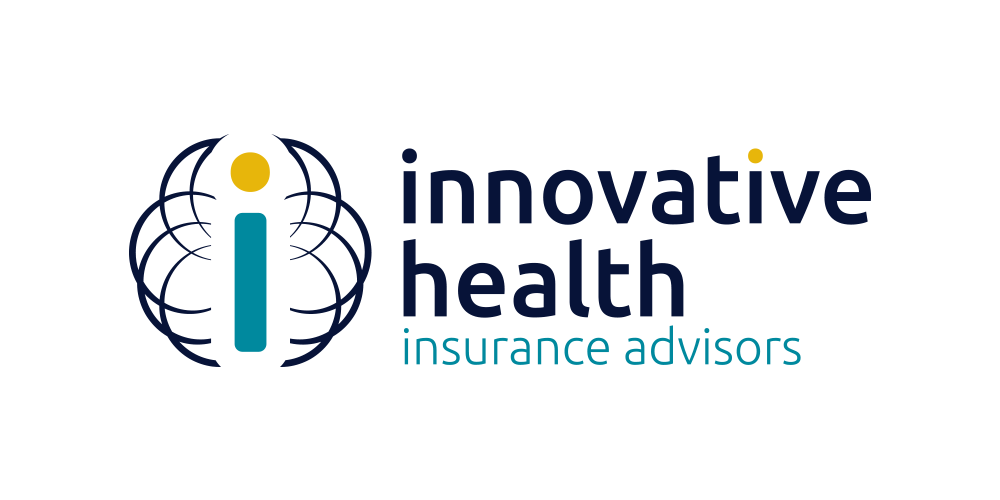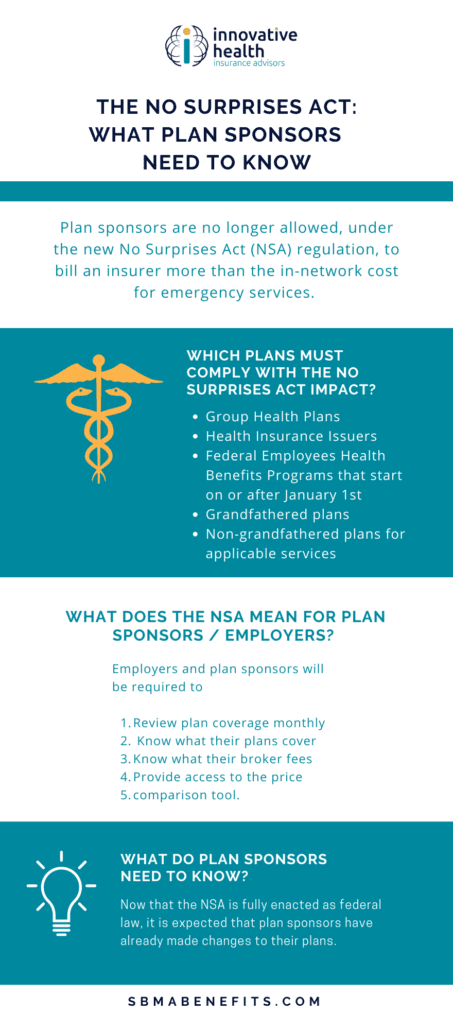Article originally published on SBMA.
Plan sponsors are no longer allowed, under the No Surprises Act (NSA), to bill an insurer more than the in-network cost for emergency services. The goal of this new piece of legislation is to reduce surprise medical billing costs for the insured seeking emergency services.
As of January 1st, 2022, the No Surprises Act is in full effect for plan sponsors. See the timeline for implementation and legislation requirements here.
The No Surprises Act could impact plan sponsors financially depending on claims filed. Plan sponsors may see an increase in cost related to self-funded plans and can become responsible for payments that are not covered by the participant.
The silver lining, according to Millman White Papers is that “Plan sponsors do gain a path to reduce liability, either through direct negotiation with the provider or facility through the Independent Dispute Resolution (IDR) process.” They continue, “Additionally, this legislation might reduce the frequency of appeals for plan sponsors.”
Which Plans Must Comply with the No Surprises Act?
- Group Health Plans
- Health Insurance Issuers
- Federal Employees Health Benefits Programs that start on or after January 1st
- Grandfathered plans
- Non-grandfathered plans for applicable services
Which Plans are not Impacted by the No Surprises Act?
- Health Reimbursement Arrangement Plans
- Retiree-only plans
- Excepted benefits
- Short-term limited-duration insurance
What does the No Surprises Act Mean for Plan Sponsors / Employers?
Internally, increased governance requirements are similar to those implemented for 401ks as dictated by the 1974 ERISA Act. Employers and plan sponsors will be required to have monthly internal governance meetings of their Boards to review plan coverage. Plan sponsors must know what their plans cover, what their broker fees are and they must provide access to the price comparison tools offered online by insurers.
These increased internal governance requirements place a burden on the employer/ plan sponsor to be knowledgeable about the coverage offered while additionally creating increased liability for failure to implement required internal governance structures, policies, and procedures.
What do Plan Sponsors Need to Know?
New rules for plan sponsors include:
- Public and accurate disclosure for group health plans.
- Review and update provider database at a minimum of every 90 days
- Price comparison tool available through phone and public website for participants that include in-network rates, out of network amounts, prescription rates
- Reporting of prescription drug costs
- Plans must cover emergency services for out of network providers
- Payment or notice of declination of payment to the non-participating provider is expected within 30 days.
- Issue ID cards that include plan deductibles, out of pocket maximum costs, contact information, and plan information
- Provider fee estimation
- Disclosure of broker compensation
- Prohibition of gag clauses
Now that the NSA is fully enacted as federal law, it is expected that plan sponsors have already made changes to their plans.



